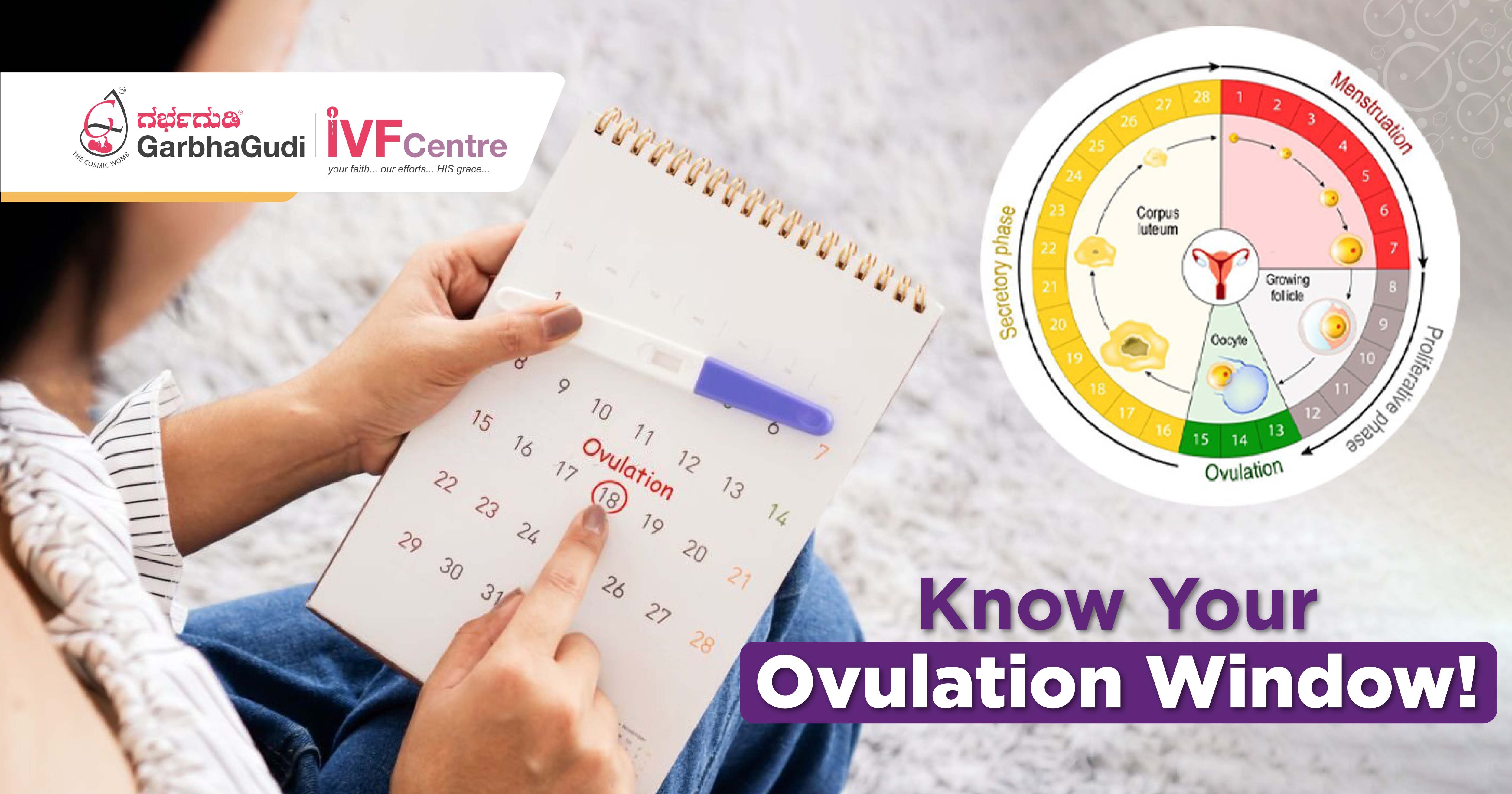Know Your Ovulation Window!

The term ‘Ovulation Window’ is usually referred to as the time when unprotected sex could result in pregnancy. It’s helpful to know the time of ovulation, which generally lasts around 12 to 48 hours. During this time, sperm can survive in the reproductive tract for up to 72 hours, and you may get pregnant five days before or after ovulation. This period is called the ovulation window. These days, there are several ways to predict ovulation. A couple of them are:
OPKs (Ovulation Predictor Kits)
These kits are available at all pharmacies. OPKs use a urine test to know the ovulation window by monitoring the surge of the luteinizing hormone before ovulation. Couples can have intercourse after identifying this LH surge.
The Cervical Mucus
During the ovulation window, the volume of cervical mucus drastically increases and becomes more clear and more slippery than the other times of the cycle. Such slimy and thick mucus is a good sign that denotes ovulation.
Fertility Calculators
These calculators help monitor your LH and estrogen levels to define your peak fertile days. They’re effective but more expensive than ovulation predictor kits.
Visiting a Doctor
Women dealing with fertility issues can visit a doctor to check their progesterone levels to know the ovulation window. Also, doctors use pelvic ultrasound to determine ovulation.
How to know if you’re not ovulating?
Some women don’t ovulate regularly. This means their ovaries experience anovulation where an egg is never released during their monthly cycles. In such women, no amount of sex can help get pregnant. Irregular periods or absent periods are the top sign that ovulation is not occurring frequently. In other cases, it’s still possible to have regular periods and not ovulate, which is highly uncommon.
Knowing the science behind ovulation is necessary if you are trying to conceive. Also, it’s much better to watch your bodily signs, such as changes in cervical mucus, body temperature, etc. Despite having frequent sex, if you cannot conceive after a year or six months (if you’re 35), infertility issues could be the reason. If your menstrual cycle isn't between 21 and 35 days, you might not ovulate regularly. Many factors could be at play related to lifestyle, but in other cases, proper medication is required to induce ovulation. So take your reproductive health seriously and pay enough attention to get rid of infertility issues.
Share this page
About Us
GarbhaGudi is a chain of New-Generation Infertility Treatment Hospitals equipped with state-of- art-infrastructure & cutting-edge IVF Technology to address infertility issues & their emotional & mental effects on couples. We have a team of qualified & experienced doctors; their in-depth knowledge & expertise leaves no stone unturned to solve all your infertility issues. The Supportive & caring staff is always by your side to motivate & guide you throughout the journey. GarbhaGudi IVF, the best fertility treatment hospital in Bangalore, provides emotional support to couples facing infertility issues and sexual problems
Contact Us